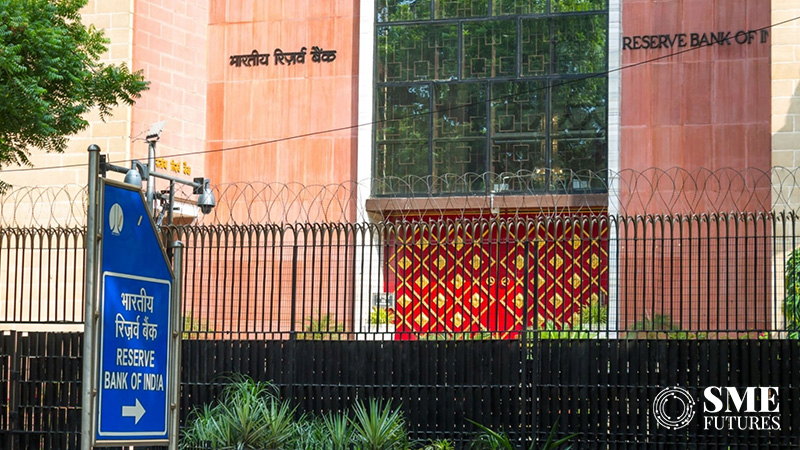In an unanimous decision, the RBI-MPC on Thursday decided not to revise upwards or downwards the repo rate — the rate at which the RBI lends to the banks. The current repo rate remains at 6.5 per cent.
The decision to keep the repo rate unchanged has taken the market by surprise as majority predicted a hike of 25 bps.
Commenting on Sujan Hajra, Chief Economist & Executive Director, Anand Rathi Shares and Stock Brokers says that with inflation still elevated and recent rate hikes by most major central banks, chance of a 25-bps rate hike was considerable.
“The RBI opting for a pause seems to suggest that the central bank expects softer inflation and growth. With this, it seems that the RBI has come to the end of rate hike for this cycle. Unless there was a big surprise either on inflation or growth, we expect the RBI to remain in pause mode during 2023.” he says.
Ritika Chhabra, Quant Macro Strategist at Prabhudas Lilladher PMS feels the RBI decision is a surprise.
Also Read: India now has 3rd highest number of billionaires in world
“The decision to keep the repo rate unchanged at 6.5 per cent is a pleasant surprise as we were expecting a 25 bps hike. With a decrease in inflation projection for FY24 from 5.3 per cent earlier to 5.2 per cent, the real rate now stands at 130 bps, thus allowing RBI to not go for another rate hike.”
Dr.Arun Singh, Global Chief Economist, Dun & Bradstreet India says the decision was expected. RBI’s pause in the rate hike cycle was the appropriate step at this point, he says.
“It was necessary to assess the impact of previous rate hikes and balance the growth and inflation dynamics. There is a renewed caution in the global economic landscape and optimism for a turnaround in global economic prospects is waning. Bank collapses in the first half of March 2023 have led to fears of contagion risk across financial markets. Even though India’s growth has been resilient so far, the country is not decoupled.”
Meanwhile Sandeep Bagla, CEO, Trust Mutual Funds says there is nothing hawkish about the policy.
“RBI-MPC has, take a pause, kept the repo rates unchanged, against majority market view. The stance remains unchanged at the enigmatic ‘withdrawal of accommodation’. We expect both GDP and inflation to be significantly below RBI year end estimate of 6.5 per cent and 5.2 per cent respectively. Interest rates are likely to soften considerably from current levels. Bonds will perform well this year generating capital gains over and above the coupon rates. Passive investments like fixed deposits will underperform debt funds.”
According to Suman Chowdhury, Chief Analytical Officer, Acuité Ratings & Research, this has been primarily induced by the turbulence in the global banking sector brought about by the failures of a few regional banks in US and the potential contagion risks in other parts of the world.
“In other words, it is “wait and watch” policy being adopted for now not only on the global environment but also on the domestic inflation print. What has also helped in taking a pause decision for now is the moderation in the hawkish stance from Fed, weakness in the US dollar and the recent improvement in India’s current account position,”
Nevertheless, the communication from RBI has highlighted that the war with inflation is not yet over and the MPC will be ready to take any further hike in rates if the concerns on inflation increase further. RBI has not made any significant modifications to its existing forecasts on growth (6.5 per cent) and retail inflation (5.2 per cent) for FY24.
Also Read: Cybersecurity skill shortage hits Indian firms, need 3.1 mn workforce
“The likelihood of a continued pause and a pivot to lower rates in the current year is still uncertain. RBI has highlighted the potential risks from food inflation given the uncertainty on the current year’s monsoon along with a significant likelihood of the core inflation levels above 6 per cent in the near term due to resilient domestic demand,” says Chowdhary.
“The pause in the rate cycle, however, will be positive for the bond markets and government borrowings. Despite a higher issuance of gsecs in H1FY24, we don’t expect the 10 yr g-sec yields to move appreciably above the current levels. RBI will also ensure that the liquidity in the system remains either neutral or slightly in surplus.” he adds.
Commenting on the RBI’s decision, Dr. Sachchidanand Shukla, Chief Economist, Mahindra Group points out that the Governor and the RBI have shown a better grasp of the daunting global backdrop mired with financial stability risks and clearly discretion is better part of valor.
“The growth and inflation estimates are reasonable and do not warrant any knee-jerk reaction and its stand on liquidity also is extremely practical and contingent on the underlying macro backdrop.” he says.
Amar Ambani, Head of Institutional Equities, YES Securities also feels RBI decision is positively surprising the markets, though, some market participants did pencil in a pause at the April MPC meeting.
“We see that RBI is over-optimistic on growth given that consensus projections call for 6 per cent GDP growth for FY24. On the interest rate trajectory, we now clearly see 6.5 per cent as the terminal repo rate and effectively now rule out any rate hikes during this year, notwithstanding the rhetoric from RBI regarding the possibility of further policy action. With India’s real rates projected to remain positive around 130 bps for FY24 and emerging global concerns about financial stability, we reckon that RBI will likely sit tight on the policy rates for quite some time.”











